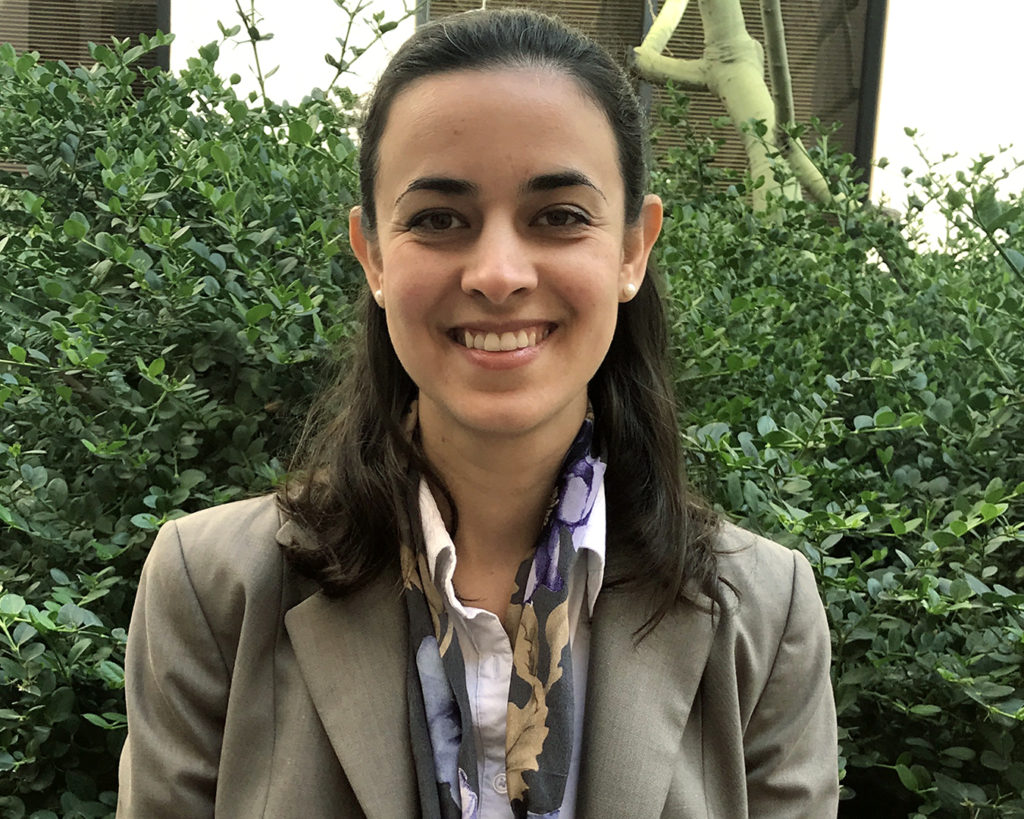

You might say Adriana Vasquez came to her calling as an advocate of Natural Family Planning quite naturally. The new NFP coordinator for the Diocese of Phoenix has parents who taught NFP well into their 70s.
“They introduced me to the beauty of the Church’s teachings on conjugal love through their joyful witness and enthusiasm for the gift of life,” Vasquez said.
National NFP Awareness Week 2019
July 21-27
Growing up in northern Virginia, Vasquez says her parents “made quite a formidable team” with her mother, a Mexican artist-turned pro-life counselor, and her father, with his “interesting usage of Spanish combining wit and humor.”
At Franciscan University in Steubenville, Vasquez double majored in theology and the school’s “Humanities and Catholic Culture” program. She minored in philosophy and Spanish, “but that was just the beginning,” she said. “I fell in love with theology,” she added, which led to her decision to pursue a master’s degree at the Pontifical John Paul II Institute on Marriage and Family in Washington, D.C.
Vasquez then went to work for the Archdiocese of New York’s Office of Family Life and Respect Life. In that role, she was also responsible for NFP. “One of my first tasks was to be trained to become an instructor in the Billings Ovulation Method,” Vasquez said. She and her parents were able to swap ideas and give each other advice on teaching NFP.
Later, she worked at the St. John Paul II National Shrine in Washington, coordinating events and working with graduate students on research. With the retirement of Cindy Leonard from the NFP Office in Phoenix, an opportunity presented itself for Vasquez. She began her new role as diocesan coordinator of NFP in March.
“Adriana brings a deep love for the Church, for the Lord and for teaching,” said Mike Phelan, director of the diocesan Office of Marriage and Respect Life. He cited her knowledge of three methods of NFP, her work with the Archdiocese of New York and the Sisters of Life, as well as her education.
“Her theological formation prepared her to deal with the many, sometimes complex, ethical issues couples face with regard to fertility intervention,” Phelan said.
Vasquez, who speaks Spanish, said she will build on the NFP legacy already established in the diocese but will expand it to reflect even deeper theological roots. She also wants to highlight how NFP helps infertile couples.
She said she and her husband Samuel struggled with subfertility, recurring miscarriages and secondary infertility as part of their marriage, “so I have kind of a different perspective on NFP, not just as a way to postpone fertility but also as a method to heal and to identify the cause of infertility, take it to a good doctor and try to heal.”
As for promoting NFP in a culture where contraception and sterilization are rampant, Vasquez spoke to the counter-cultural aspect of NFP and how it helps couples have stronger marriages. As the Church marks National NFP Awareness Week July 21-27, helping Catholics understand and practice those teachings will be Vasquez’s goal.
“Love is why we do this. We don’t do it because we’re just trying to get people to stop contracepting,” Vasquez said. “We want people to experience authentic love and make it their own. That’s something that’s possible when you live the Church’s teachings.”






